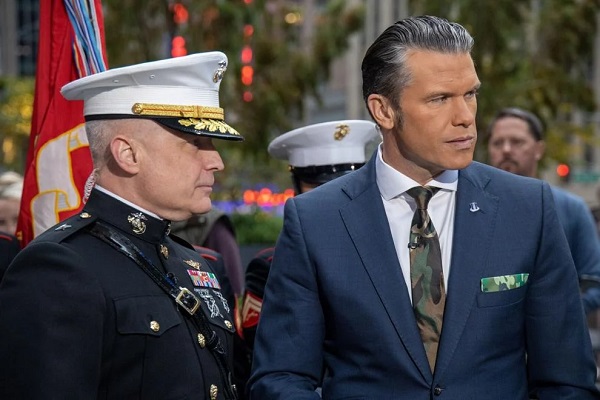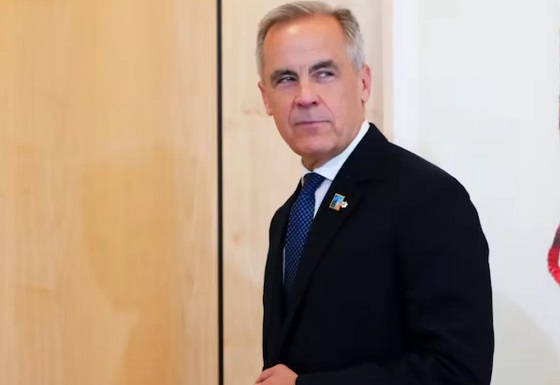From The Center Square
By Casey Harper
“We’ve seen under the last three and a half years of the Biden-Harris administration, it’s been hard to recruit and keep good service members, in part because of the bad woke policies, the loss of focus by this administration on what the mission is”
President-elect Donald Trump’s pick to lead the Department of Defense, though not yet confirmed, has pledged to root out “woke” ideology in the military.
Other Republicans have lamented the same issue for years but done little about it, but if Peter Hegseth can be confirmed, the U.S. military may become ground zero in the Right’s war on woke.
Military veteran and Fox News Host Hegseth has repeatedly attacked the military leadership’s embrace of “woke” culture, which usually refers to the ideology around transgenderism, gender pronouns, and racial identity politics.
Despite allegations and attempts to end his bid, Hegseth has stood firm, though his fate in the Senate is unclear. A public statement from Trump last week put to rest any thoughts that Trump was considering withdrawing the pick.
“Pete is a WINNER, and there is nothing that can be done to change that!!!” Trump said in a statement.
The American Accountability Foundation released a list of 20 officers who Hegseth should fire. Notably, during his viral interview with Joe Rogan, Trump told a story about how military leaders in Washington, D.C. told Trump that destroying ISIS quickly wasn’t possible, but when Trump visited the military leaders on the ground, he heard a different story. Those commanders, Trump said, told him it was doable but Washington, D.C. had tied their hands.
“The woke takeover of the military is a major threat to our national security,” AAF President Thomas Jones wrote in a letter to Hegseth earlier this week.
“As global tensions rise, with Iran on the march, Russia at war, and China in the midst of a massive military buildup, we cannot afford to have a military distracted and demoralized by leftist ideology,” he added in the letter, first obtained by The New York Post. “Those who were responsible for these policies being instituted in the first place must be dismissed.”
That anecdote highlights growing sentiment on the Right that the effectiveness and mission of the military has been hijacked by a handful of leaders in the Pentagon.
Lawmakers have raised that concern for years, pointing to a slew of recent federal spending backing controversial Diversity, Equity and Inclusion policies.
Last year, Trump’s pick to lead the U.S. State Department, Sen. Marco Rubio, R-Fla., told The Center Square that woke policies were “hollowing out” our military.
A Department of Defense comptroller report from the same year included $86.5 million for “dedicated diversity and inclusion activities” as well as language showing the importance of DEI to the military.
“The Department will lead with our values – building diversity, equity, and inclusion into everything we do,” the report said.
The actual figure spent on backing the same kind of policies is likely much larger and impossible to know, as the language and ideology has permeated much of the employee training, H.R. policies, and more.
Other anecdotes highlight the prevalence of the newfound way of thinking for Armed Forces. For instance, as The Center Square previously reported, official training materials for West Point cadets included warnings about white privilege.
Rubio released a report detailing these same issues, which includes another example where a slide presentation for the Air Force Academy was titled, “Diversity & Inclusion: What it is, why we care, & what we can do.”
This same taxpayer-funded training warns cadets to avoid saying words like “mom” and “dad” because the language is gendered.
House Majority Leader Steve Scalise, R-La., spoke about the NDAA and blamed woke policies for the armed forces’ difficulties meeting recruiting goals. Even after lowering recruitment targets, the U.S. military has fallen short of its recruitment goals in recent years.
“We’ve seen under the last three and a half years of the Biden-Harris administration, it’s been hard to recruit and keep good service members, in part because of the bad woke policies, the loss of focus by this administration on what the mission is,” Scalise said at a news conference Tuesday.
With Trump and Hegseth in the executive branch and leadership like Scalise behind it, cleaning house of the Pentagon might be possible, albeit difficult.
“We start addressing that by routing out more of the woke policies over at the DOD,” Scalise continued. “Of course, that ultimately is going to get fixed when President Trump takes office next month. He talked about those things during the campaign, what he would do to restrengthen and reinvigorate our military.”
If confirmed by the U.S. Senate, Hegseth would lead the largest and most complex federal agency with an annual budget of $840 billion and 3.4 million military and civilian employees.
Hegseth, 44, was an infantry officer in the Army National Guard from 2002 to 2021. He graduated from Princeton University in 2003. He was later commissioned as an infantry officer in the Army National Guard. He served in Afghanistan, Iraq, and Guantanamo Bay. He left with the rank of major, according to the Army National Guard. Hegseth earned two Bronze Stars, two Army Commendation Medals and the National Defense Service Medal with Bronze Service Star, among others.
But Hegseth faces scrutiny over a 2017 sexual encounter in which a woman told police the former Fox News anchor blocked the door of a hotel room in California and sexually assaulted her. Hegseth has denied the allegation and said that the encounter was consensual. The woman reported the allegations to local police. Hegseth was never charged with a crime. He reached an undisclosed settlement with the woman in 2023.





















